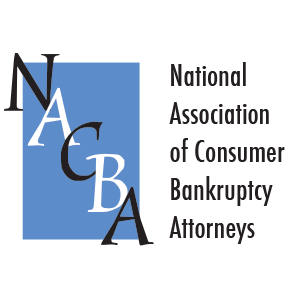Bankruptcy can be tough. But it can also teach hard lessons. Like how a budget an emergency savings is mission critical.
Maybe you had those and your bankruptcy had nothing to do with them. You had a budget and your emergency savings wasn’t enough for an extended job loss. Stuff happens. That is why we are here. You can skip this post and come back for the next one.
But for those of you who do need some help;
BUDGETING 101!
First – Know when you need to ask for help. If you have no clue even where to start or what to do, call a professional!!!! I promise you that you won’t regret the fee for getting set up with one of these folks if you have no clue where to start.
LearnVest offers an inexpensive 1 on 1 with a certified financial planner that will help you rebuild following a bankruptcy case. A good accountant or a local financial planner is an option too but they can be cashy. My experience is millenials (I am one so I can say it) prefer LearnVest, everyone else seems to prefer brick or mortar. Do what works for you.
So let’s say you don’t think you need help. Ok. Here is my budgeting set up.
1. Establish how much money you net each month.
2. Establish your monthly bills.
3. Establish your non-monthly bills. These are things like car repairs, taxes, veterinary bills, etc. I am perpetually forgetting that I have to pay flood insurance annually. I was really proud of myself for having remembered and budgeted that this year. Ask my husband, I won’t shut up about it.
4. Figure out what you are ACTUALLY spending on everything else.
This is a big one. I am bolding this because it is sooooo big. You must do this. You must get out your bank statement and your credit card statement and see what you actually spend. Mint.com is great for this if you want the computer to do the work for you. This is not a skippable step. If you do not do this part or do it and are NOT honest about it your budget will fail. Big time.
Nobody knows how much they spend at Dunkin each month. I repeat nobody. I only just found out. I am a little upset with myself about it. I, of all people, should know better.
The easiest way to cut back on unnecessary expenses is to know where it is going.
So you have aggregated all this information. What now?
Start an emergency savings account and a non-monthly savings account. You can do them at your current bank or establish a high yield savings account. Either is fine. I like distance between me and my savings because I have no will power so I use a high yield online account that I have to really work to take money out of. Whole days of delay. It works for me. Forces me to question what I am doing.
Ok so let’s look at your numbers.
Remember there is no magic number for how much you should save. I have heard it all. You should save 10%, 15%, 7% and it goes on and on and on and on. Do what works for you. If that is 2%, do 2%, just do it. The only rule I care about is the six month rule. You should have six months of net salary set aside as an emergency fund. This may feel like a lot. I know it does. So bite it off a little at a time. Think of it as first, I am going to save one month, then two, than three. Slowly but surely you will get there. Treat this like a monthly fixed bill. When you establish how much to put in, set an automatic deduction and forget about it.
Do the same thing with non-monthly. Take that non-monthly number from above, divide by 12 and set the automatic deduction.
Bills – Pay them. See if you can make cuts or decreases. I know a lot of people cutting the cord with cable. I have thought about it. I have a toddler, so TV isn’t a thing that happens in our house. When my contract is up, we are bailing out on cable. It is an easy cut to make in our house. I am sure there is an easy cut in your house. Find it, cut it.
So now you are left with the leftover funds. This is the money you are allowed to spend on groceries, etc. Not a lot left for Dunkin runs right? Here is the thing. I love an iced coffee and a donut as much as anyone and I see nothing wrong with getting it once a week, but that five times a week you are doing (don’t pretend you aren’t)…that amounts to 64 bucks a month. That’s right. 65 DOLLARS. Multiply that by 12 and you are spending $775.00 a year on coffee. My friends…that is a half of a Caribbean vacation. And that is JUST your Dunkin habit. I am betting there is a WHOLE VACATION in your misc spending that you could be cashing in? (Also, how good is that swimsuit going to look when you have skipped the donuts and fast food for a whole year?)
Do you want to go to the Bahamas or eat another donut?
I vote for the beach. I printed a picture of a palm tree and taped above my computer today while I drank the last iced coffee I will have for a full week.
Interested in how we can help you get on the other side of a tough financial situation? Give us a call at 732-302-9600 or fill out our online consultation form and we will call you!







